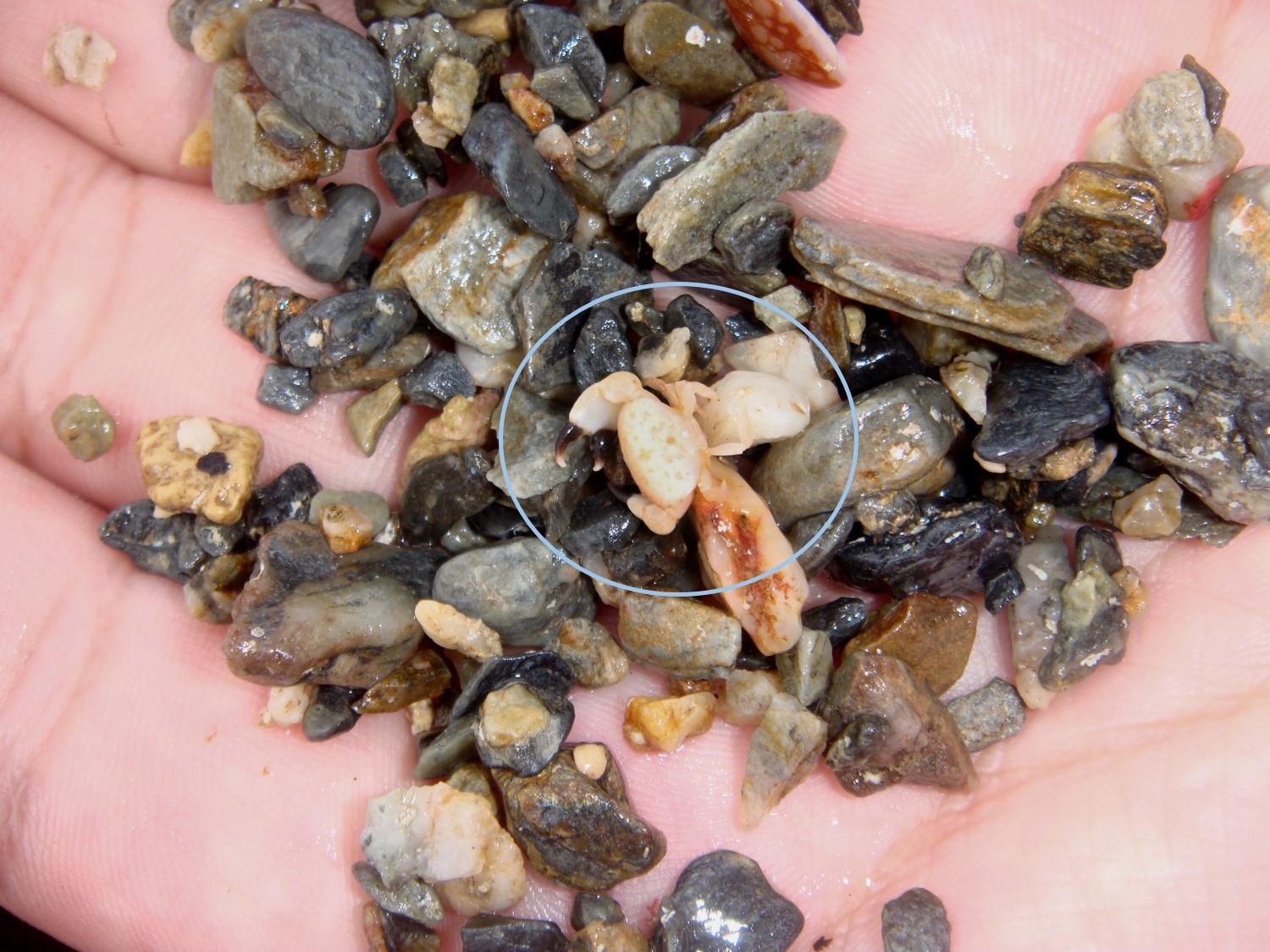Follow us on Telegram for the latest updates: https://t.me/mothershipsg
Together with researchers at the University of the Ryukyus, Japan, scientists at the National University of Singapore (NUS) published their big discovery on June 11.
Among 7,800 species of known crabs in the world, the reproductive structures of one new species set it apart from the rest.
Never before seen reproductive structures in crabs
Only six millimetres wide, the new xanthid crab was first spotted more than a decade ago in the high-energy surf zones in Okinawa Island, Ryukyu Islands, Japan.
 It's so small that you might mistaken it as one of the pebbles on the shore when it's not moving. Photo by NUS.
It's so small that you might mistaken it as one of the pebbles on the shore when it's not moving. Photo by NUS.
What struck researchers was its one-of-a-kind asymmetrical male and female reproductive structures.
For both sexes, one side of the reproductive unit is much more developed than the other, such that the female and males form matching pairs.
As such, this newly discovered species evolved to have different mating behaviour.
"The evolution of asymmetrical reproductive parts is not known for any crab, and this is truly amazing in nature,” remarked Peter Ng, a world-leading expert in crustaceans and the Head of Lee Kong Chian Natural History Museum at NUS.
 Photo via Tohru Naruse
Photo via Tohru Naruse
Not a mutation or a freak
10 years of intense research later, the crab is now confirmed to not be "an anomaly, mutation or freak of nature", as stated by Tohru Naruse, an Associate Professor from the Tropical Biosphere Research Center, the University of the Ryukyus.
"It [is] real, and natural," Naruse added.
Finally, the small crab which was coined as the "sexy crab" by its researchers is now formally given a scientific name: Mabui calculus.
According to a press release by NUS, "Mabui" means soul in the Okinawan dialect.
And based on local folklore, people who are deeply shocked "drop their Mabui".
“Just when we thought we (knew) crabs well, we find one that blows our "Mabui" away,” expressed Ng.
Top image by Tohru Naruse
If you like what you read, follow us on Facebook, Instagram, Twitter and Telegram to get the latest updates.

